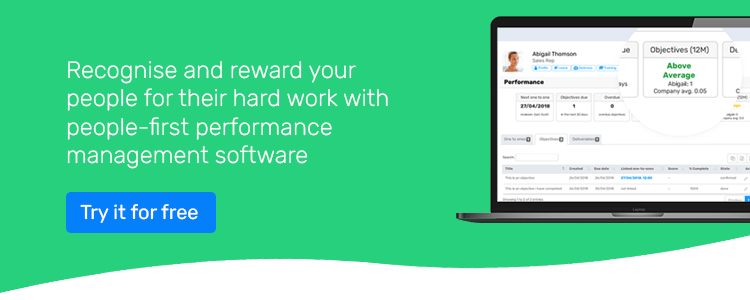Communication plays a vital element in every aspect of our lives - whether we realise it or not.
It’s difficult to think of a way in which communication doesn’t affect an organisation. From day-to-day discussions with colleagues, coaching employees, to liaising with your customer or client base - effective communication is a universal necessity for business success.
In this blog, we look at what communication is, and the top benefits of effective communication. We also delve into communication styles & why they're important to understand.
5 benefits of effective communication within your SME
What are the 4 communication styles?
How to adapt your communication style
What is communication?
Communication is defined as the exchange of information between people. We often assume that this refers to just written and verbal communication - but communication is more than just words.
It can be your facial expressions, your body language or the tone of voice you use. All of these things send a message to the person you’re communicating to.
Communication can also involve conveying your business goals, reinforcing your values, sharing knowledge amongst teams & even handling conflict.
What makes communication successful?
The marker of a successful communication is when all parties understand the same information, or are on the same page. Without this understanding, a message can turn into frustration by being misinterpreted, or poorly delivered.
We take a look at the reasons why you need to ensure that your organisational communication is effective.
5 benefits of effective communication within your SME
Builds relationships
Humans are inherently social. Forming good relationships at work through positive communication can make you happier and more productive.
Research from Gallup shows that having a 'best friend' at work positively contributes to the employee experience - along with improving communication & commitment.
Encourages innovation
Being innovative relies on people engaging to explore new topics, learn new ideas and express opinions. Innovation is a collaborative process that inevitably means a number of people working together to create and solve problems.
Ideas almost always get better as they are shared and reworked so it is essential that the team are communicating effectively for this process to take place.
Strengthens teams
Open communication is a concept that many companies claim to value, but very few actually achieve. The idea is that all parties within a business are able to express ideas with one another and moves away from the traditional top down way of communicating allowing everyone’s voices to heard.
Open communication creates a more cohesive team and can also boost employee morale. If your employees are well informed of the company’s vision and goals they will feel secure in their roles.
Engaged employees
To lead others, you must demonstrate effective communication skills. Whilst good communication is important in all aspects of the business it is none more so than for a manager.
Managers who are able to pass information on to their team effectively allow their staff to know exactly what their responsibilities are and what is expected of them. Equally, by forming positive relationships with their employees they create the grounding for open communication and the the ability to provide constructive feedback.
Company growth
If you can get all the above points right and communicate effectively within your business then, as a consequence, your setting your business up for growth. A report from Towers Watson's found that "companies that communicate with courage, innovation and discipline, especially during times of economic challenge and change, are more effective at engaging employees and achieving desired business results."
Sometimes the difference between a good and a bad job are the people that you work with. Forming positive relationships with your team benefits your company in many ways and is especially important as your small business continues to grow. This is all done through effective communication, so why not take a step back to think about the way your team communicates with one another?
What are the 4 communication styles?
You may already be familiar with personality profiling such as Myers-Briggs or DiSC. The 4 communications styles are similar. Developed by leadership coach Mark Murphy, they profile the 4 broad communication preferences people have.
These are separate to personality profiles which makes it worth reviewing your team’s communication preferences, even if you’re all familiar with each other’s personality profiles.
The benefits of understanding your own (and others) communications styles are:
-
You'll become more aware of your own communication style. You can use this knowledge to moderate some of your more extreme communication behaviours.
-
You'll become more aware of other people’s communication styles and learn how to adapt your approach to suit them.
Defining the 4 styles of communication
Analytical
People with an analytical communication style love hard data and clearly defined tasks. They like to drill into the detail and understand the nitty-gritty of a situation. They dislike vague language and have limited patience for discussions that aren’t focused on the task in hand.
Pros: Analytical communicators leave no stone unturned and you can trust them to get right under the flesh of a situation. These logical individuals have a firm grasp of facts which means they’re often experts in their field.
Cons: Their desire to know EVERYTHING can unsettle others and feel controlling. They’re often suspicious of people without a strong command of the data. Their desire to focus on the facts can make them seem cold and unemotional and this can negatively affect their working relationships.
Intuitive
Intuitive communicators are the ‘big picture’ people. Wanting to cut to the chase, they prefer a broad overview of a situation and avoid getting bogged down in the details at all costs. They hate in-depth, step-by-step discussions and want to jump ahead to the summary.
Pros: People with this communication style are great at cutting out the nonsense and getting to the point. These people are comfortable with big ideas and don’t let a lack of background information stall them.
Cons: Their reluctance to engage with the detail behind the final result can put businesses and relationships at risk. They can be impatient with people who want to go through the details and their unemotional, to-the-point style can feel abrupt – something which can intimidate other styles of communicators.
Functional
Functional communicators like everything ticked off and done in the right order. With a focus on communicating all the necessary information, they’ll make sure you get a balanced end result.
Pros: Great at managing projects, these people make sure nothing gets missed and will hold people accountable for skimming the important (but less interesting or more difficult) details.
Cons: Their dogged determination to cover every point can leave more impatient types frustrated. They can often ‘lose the room’ when sharing updates because they insist on covering every detail.
Personal
Personal communicators see relationships as the most important factor. These are the people who tune into what’s going on beneath the surface. Often diplomatic, these people are excellent listeners and able to smooth over potential conflicts.
Pros: These people build strong relationships and have a network of people they can call upon. They’re excellent at picking up on the ‘vibes’ in a business or meeting because they tune into participants’ emotions.
Cons: Their emotional approach can be downplayed as ‘touchy-feely’ and frustrate more analytical communicators who see facts as more important than emotions. These people can be easily upset by more upfront communicators.
Curious to see what type of communicator you are? You can take the test here.
How to adapt your communication style
With this information under your belt, you can start to adapt the way you communicate with others in your business. Here are a few suggestions:
- Doing a presentation? Accompany a top-line presentation with a deck of facts and figures that analytical types can dig into. Be sure to have the answers to the questions they’re sure to come up with (or have someone on your side who can help).
- Sharing a written report or proposal? Use executive summaries and subheadings to pull out the most important details. This will stop intuitive communicators getting impatient.
- Holding a one-to-one or small team meeting? Start with a more personal catch-up to see how everyone is feeling and allow personal communicators connect and relax into the session.
- Discussing a big project? Consider using a functional communicator to take minutes or capture thoughts on a whiteboard for everyone to review. This way you know you won’t miss anything. Functional communicators are great at setting meeting agendas and running group project boards too. Agree a timescale for the meeting to keep them in check.
- Not sure what communication style someone has? Start your interaction by asking them what information they’d like to know. This will instantly give you a sense of their communication style.
Successful communication for your SME
Understanding more about styles of communication will help you make yourself heard, no matter who you’re talking to. And that’s a vital part of leading others and helping them see your point of view.
Remember that most people will be a blend of communication styles and may flex depending on their mood and the situation. It’s your job as the communicator – and leader - to make sure everyone understands you, no matter who you’re dealing with.
Whatever your style - if you develop a way of communicating with your team that works for you, you're on the way to success for your business.

Author: Aimée Brougham-Chandler
An IDM-certified Digital Copywriter as of February 2023, Aimée is Breathe's Content Assistant. With a passion for guiding readers to solutions for their HR woes, she enjoys delving into & demystifying all things HR: From employee performance to health and wellbeing, leave to company culture & much more.




